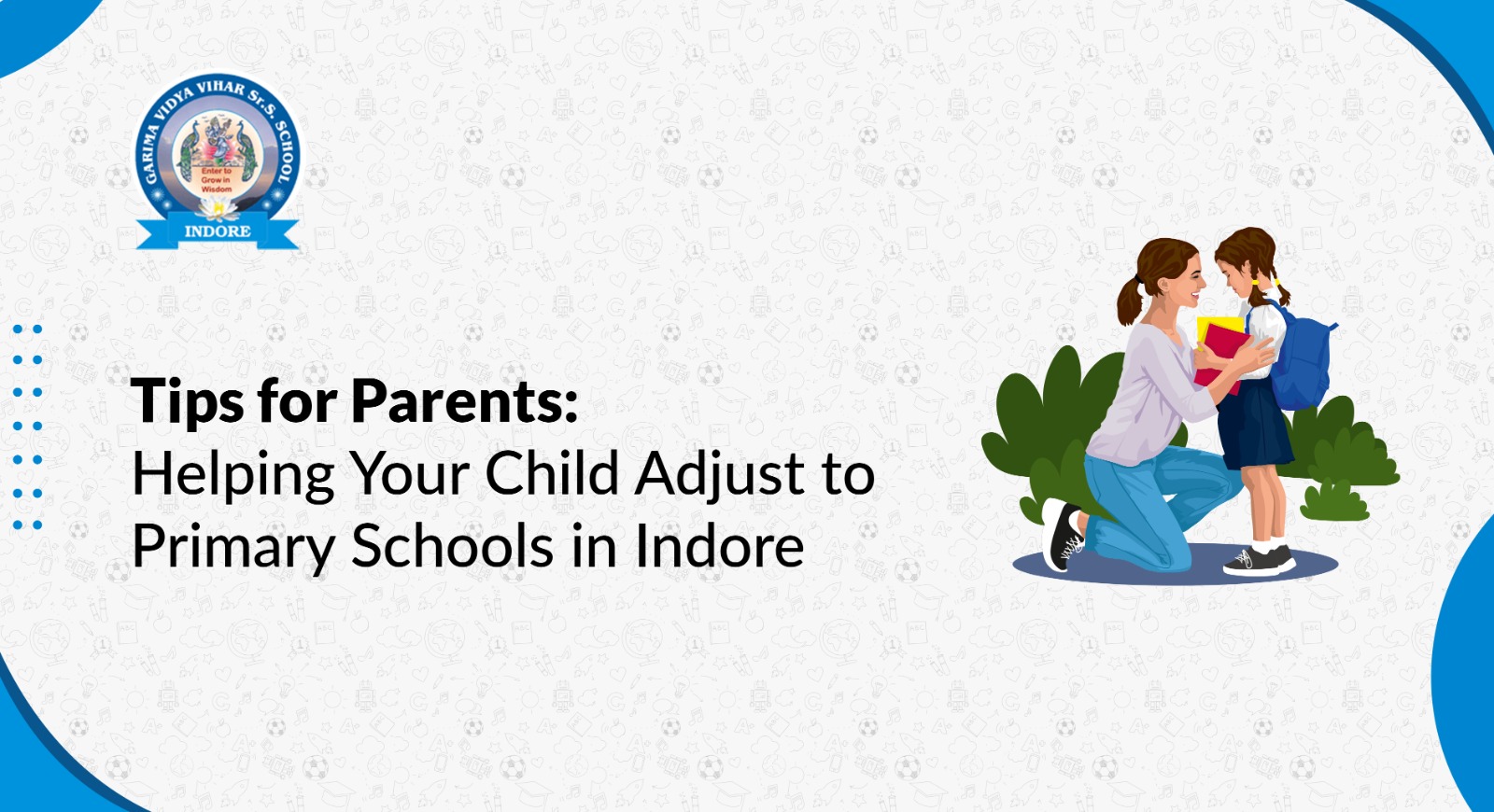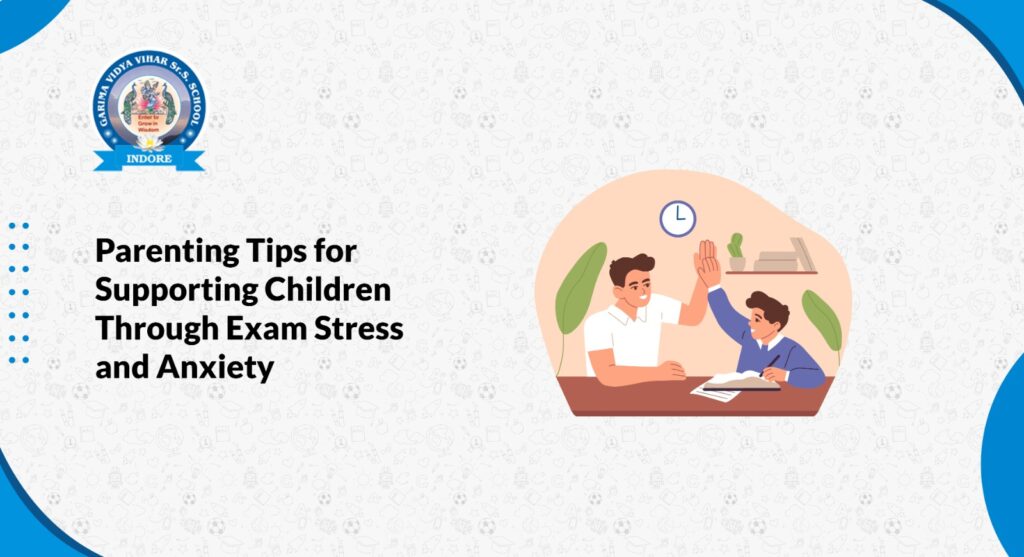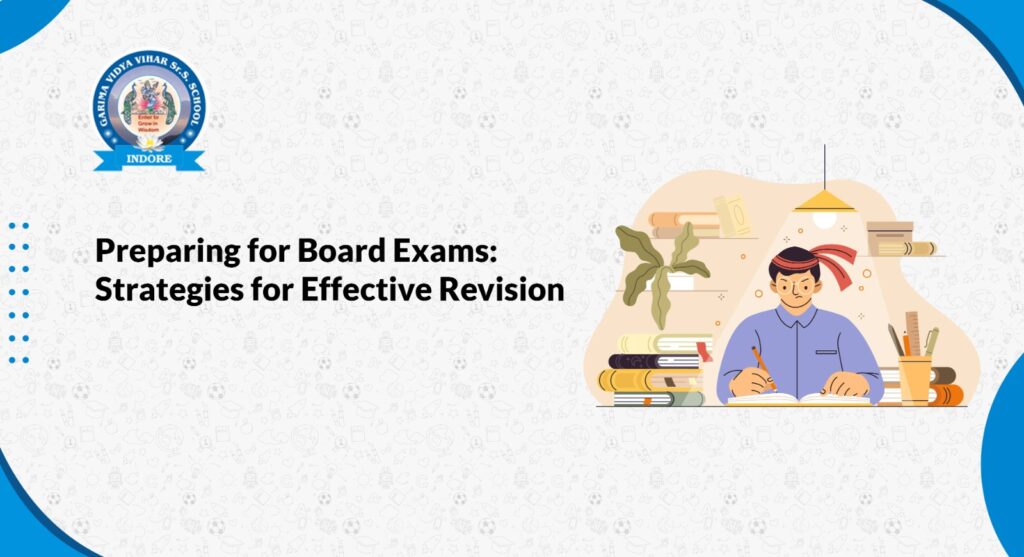Your young one is growing fast and is ready to join his/her school soon, but you are worried about how the young kid will be able to manage at the new place around the new faces.
No worries, Indore’s primary schools offer a variety of options for your young learners. So, let’s explore effective ways for every parent to help their children adjust to primary schools in Indore, ensuring a smooth transition and positive educational experience.
Choosing the Right Primary School
When it comes to choosing the right primary school for your child in Indore, it’s important to consider several factors that align with their needs and values. Here are some key points to keep in mind:
Research
Start by researching and identifying the top CBSE schools in Indore. Look for schools that have:
- A good academic reputation
- Strong teaching methodology
- A wide range of extracurricular opportunities
Reading online reviews and talking to other parents can also provide valuable insights.
Visit Potential Schools
Once you have a list of potential schools, take the time to visit them with your child. This will give you both a chance to:
- See the facilities firsthand
- Observe the classroom dynamics
Pay attention to:
- Cleanliness
- Safety measures
- Resources available
- The overall environment of the school
Involve Your Child
It’s important to involve your child in the decision-making process. Take their opinions and preferences into consideration while selecting a school. This will help them feel more invested in their education and increase their sense of ownership.
Assess Facilities
While visiting schools, assess their facilities such as:
- Libraries
- Laboratories
- Sports grounds
- Playgrounds
These facilities play a crucial role in providing a well-rounded education experience for your child.
Remember, choosing the right primary school is a significant decision that can greatly impact your child’s educational journey. Taking the time to research, visit schools, involve your child, and assess facilities will ensure that you select a school that best suits their needs and sets them up for success.
Preparing Your Child for the School Routine
Helping your child develop a sense of structure and independence through establishing a consistent morning routine before school can set a positive tone for their day. Here are some tips to help you prepare your child for the school routine:
- Set a consistent wake-up time: Waking up at the same time every day can help regulate your child’s body clock and make mornings less stressful.
- Encourage self-care: Teach your child to dress themselves, brush their teeth, and wash their face independently. This will not only save time but also promote their self-confidence.
- Plan a nutritious breakfast: Make sure your child starts their day with a healthy meal that provides them with the energy they need to concentrate in class.
- Involve them in packing their bag: Let your child take responsibility for packing their school bag with the necessary books, notebooks, and stationery.
- Create an after-school schedule: Allocate specific time slots for homework, playtime, and relaxation. This will help your child manage their time effectively.
Remember, it’s important to tailor these routines according to your child’s age and abilities. By incorporating age-appropriate responsibilities into their daily schedule, such as tidying up their toys or setting the table for dinner, you can also foster a sense of ownership over their education and instill valuable life skills.
Nurturing a Positive Attitude Towards Learning
Encouraging your child to have a positive attitude towards learning is crucial for their academic and personal growth. By nurturing their curiosity and involvement in their learning journey, you can set them up for long-term success. Here are some tips to help you achieve this:
Encourage a love for learning outside of school:
Learning doesn’t have to be limited to the classroom. Engage your child in educational activities at home, such as reading books together, visiting museums or science centers, and exploring nature. These experiences will ignite their curiosity and make them excited about learning.
Foster open communication:
Create a safe space for your child to share their school experiences with you. Ask them about their day, listen actively, and show genuine interest in what they have to say. By doing so, you are emphasizing the value of effort and resilience, and encouraging them to persevere even when faced with challenges.
Celebrate achievements:
Recognise your child’s accomplishments, both big and small. Whether it’s completing a difficult assignment or making progress in a particular subject, praise their efforts and highlight the positive aspects of their work. This will boost their confidence and motivate them to continue striving for excellence.
By nurturing a positive attitude towards learning in your child, you are empowering them to take ownership of their education and develop a lifelong love for acquiring knowledge.
Building Strong Relationships with Teachers and Peers
Building strong relationships with teachers and peers is crucial for your child’s successful adjustment to primary school in Indore. Here are some tips to help you foster these connections:
Establish a collaborative partnership with teachers
Regular communication and active participation in school events can go a long way in building a strong relationship with your child’s teachers. Here’s what you can do:
- Attend parent-teacher meetings.
- Volunteer for school activities.
- Stay updated on your child’s progress.
This involvement shows your support for the school and helps create a positive environment for your child.
Promote social skills development
Encourage your child to interact with their classmates by:
- Arranging playdates or extracurricular engagements.
- Participating in group activities or team sports.
These interactions outside of school can help them develop social skills, build friendships, and feel more comfortable in the classroom. It also teaches them valuable lessons about teamwork and cooperation.
Remember, strong relationships with teachers and peers can provide a supportive network for your child during their primary school years. By actively engaging with the school community, you can contribute to their overall growth and well-being.
Dealing with Separation Anxiety
The first day of school can be an emotional and challenging experience for both children and parents. It’s common for children to experience separation anxiety when starting a new school. Here are some strategies to help parents ease separation anxiety and ensure a smooth transition:
Gradual Goodbyes
Before the first day of school, gradually introduce your child to the idea of being away from you by leaving them with trusted family members or friends for short periods of time. This will help them become more comfortable with separation.
Create a Personal Connection Object
Encourage your child to choose a small object, such as a keychain or a special toy, that they can keep in their pocket or backpack. This object can serve as a reminder of home and provide comfort during the school day.
Open Communication
Maintain open lines of communication with your child about their feelings and concerns regarding school. Encourage them to share their experiences and listen attentively without judgment. This will help them feel supported and understood.
Address Bullying or Exclusion Concerns
Talk to your child about bullying and exclusion, making sure they know that it’s not their fault if someone mistreats them. If any issues arise, reach out to the school administration immediately to address the situation and work together to prevent future problems.
Remember that each child is unique, and it’s important to be patient and understanding during this adjustment period. By implementing these strategies, parents can help their children feel more secure and confident in their new school environment.
Supporting Homework Responsibilities
When it comes to homework, creating a supportive environment and routine at home can greatly contribute to your child’s success. Here are some tips to help you support your child’s homework responsibilities:
- Establish a designated homework area: Set up a quiet and well-lit space where your child can focus on their homework. This area should be free from distractions like toys, TV, or loud noises. It could be a desk in their room or a specific corner of the house.
- Set realistic expectations: Understand that every child is different, and their homework completion time may vary. Set realistic expectations based on your child’s abilities and the difficulty of the assignments. Avoid putting unnecessary pressure on them to finish quickly or perfectly.
- Provide guidance when needed: While it’s important to encourage independence, be available to provide guidance and support when your child needs it. Offer assistance with difficult concepts or help them break down tasks into manageable steps.
Remember that homework is not just about completing assignments but also reinforcing what they’ve learned in school. By creating a conducive environment and offering assistance when needed, you can help your child develop good study habits and become more confident in their academic abilities.
Encouraging Extracurricular Engagement
Encouraging your child to participate in extracurricular activities offers numerous benefits that complement their academic journey. Here’s how you can support and encourage them:
Benefits of Diverse Extracurriculars
Participation in diverse extracurricular activities, such as sports, arts, music, or clubs, helps children develop essential life skills like teamwork, time management, and leadership. It provides a well-rounded experience that enhances their social and emotional development.
Guiding Talent Exploration
Encourage your child to explore various interests and talents through extracurricular avenues. This could involve trying different activities to find what they enjoy or excel at. Support their participation by showing interest in their activities and providing the necessary resources or guidance.
By actively promoting extracurricular engagement, you can help your child discover their passions while fostering a balanced and enriching school experience.
Conclusion
Helping your child adjust to primary school is crucial for their long-term academic and emotional development. As a parent, your proactive involvement plays a vital role in ensuring a smooth transition and positive educational experience for your child in Indore’s primary schools.So, embrace this exciting phase of your child’s life, be their cheerleader, and guide them every step of the way. Together, we can ensure that your child thrives in their primary school years in Indore!







